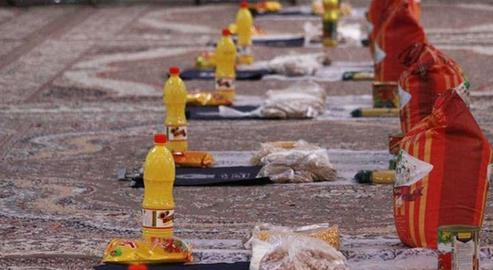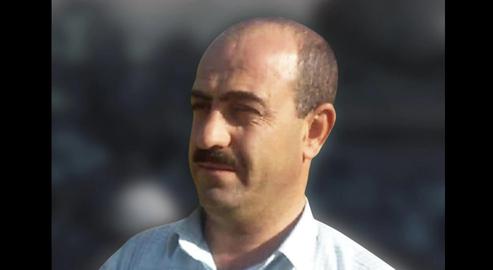The Sabzevar Dar ol-Mohsenin Institute opened its doors in early 2014 in Sabvezar, Khorasan province. The charity cares for orphaned and abused children in the area and had been growing exponentially – until the double blow of coronavirus and a hike in the cost of goods. Now, the organization is of many Iranian charities and NGOs struggling to make ends meet at all.
Rezvan, a volunteer at Dar ol-Mohsenin, told IranWire: "Before the coronavirus outbreak, thanks to grants and public donations, we were getting on well and we had even the capacity to cover and support more children and families. But now, for the past few months, we’ve had a real problem meeting the basic needs of the children."
This charity worker says that the usual donors to city-based charities are often not very wealthy themselves and, like most ordinary people, are now struggling with the impact of Covid-19 on their own livelihoods. "Sabzevar is not a big city,” he says, “and although most people are kind to Dar ol-Mohsenin, not all our fellow citizens are wealthy. Public donations have, of course, decreased. We are really worried our future continuation of our path and don’t know how the institute will be managed.”
Dar ol-Mohsenin opened its first house, called Ehsan, in 2014. It had the capacity to care for 20 abused and orphaned children, from three to six years old, who must be moved into alternative accommodation once they reach the upper age limit. "According to the rules of the Iran Welfare Organization, children between the ages of six and 12 must be kept in a separate place, so children and leave Ehsan after reaching age six,” Rezvan explains.
For this reason, in 2016, the charity’s second house was established with the help of charities and financial backers. This one provides for children aged from six to 12. Then at the end of 2017, the third house, named Sobhan, was set up to taken care of teenagers aged 12 to 18.
Since the beginning of the new year, Rizvan says, charitable donations have not been sufficient to cover Dar ol-Mohsenin’s running costs. "Honestly, in the last two weeks we were having difficulties paying for the food at all three centers. We’ve reached a point where it has become difficult to buy so much as plain bread for so many children.”
The volunteers have sought donations from friends and acquaintances and collected a small amount of money this way. “We do everything we can,” Rizvan says. “But there are so many children. In the three years I’ve been working in this institute, I have never experienced such a difficult and stressful period as these last two weeks."
One of the teenagers being cared for by the charity, Rizvan says, has even offered to sell goods on the street as a peddler to help cover its expenses. Staff naturally forbade it, but the exchange has made Rezvan even more worried about Dar ol-Mohsenin’s vulnerable charges. "I was really heartbroken. These children consider this their home, and now the conditions are not as good, they’ll do anything to keep their home – come hell or high water."
Small Organizations Under Threat Across Iran
Other charities are in similarly dire financial straits. In Iran, once charities have received their license to trade from the Welfare Organization, they are left to manage and finance themselves with no state handouts or support. Child custody licenses, meanwhile, are issued by the Welfare Organization to charities like Dar ol-Mohsenin after a lengthy appraisal of staff and facilities, but also of the charity’s financial position.
A volunteer named Ali, who works for several different humanitarian organizations, tells IranWire he believes the best way to secure funding is to bring would-be donors to see the charity’s day-to-day material conditions. “At one charity,” he said, “I remember when the donors came to visit, they were so affected by the conditions and the innocence of the children that they gave us a lot of help. The best way forward is probably to make the problems faced by charities public.”
Smaller organizations are in the most difficult position, he adds: "Coronavirus and people’s economic situations have caused a slump in donations, and the worst-hit are the small, little-known and local charities. Large charities that advertise usually receive grants and donations on a regular basis. But others are more vulnerable.”
Six months after the outbreak of coronavirus in Iran, the famous Iranian film director Kamal Tabrizi took to Twitter to raise the alarm over the financial situation of a charity called Children of the Rain. Founded in 2008 by Hamid Kianian, a drama teacher in Mashhad, the institute helps to support people with physical and mental disabilities by teaching them theater, music and handicrafts. But as Tabrizi reported, its prospects now look bleak.
"The uninvited menace of coronavirus has ruined job creation at Children of the Rain for six months," he wrote. "Their theater performances and concerts in Mashhad, Shiraz, and Gorgan have been canceled and they have not received any funding since January 2020. Simultaneously they been forced to move from their rented premises, which has placed a number of additional costs on their hands. They do not have an income now. So, let's work together to preserve and support this great cultural movement.”
visit the accountability section
In this section of Iran Wire, you can contact the officials and launch your campaign for various problems



























comments